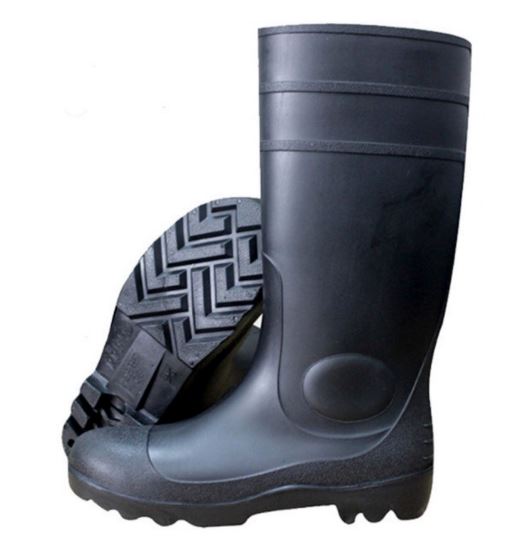Tel: 0129-4001010 Phone: +91 730 321 5033
Email: cs@absoluteveritas.com
BIS CERTIFICATION FOR INDUSTRIAL AND PROTECTIVE RUBBER KNEE AND ANKLE BOOTS IS 5557:2004
In today's competitive landscape, maintaining market presence without a certified, high-quality product can be challenging. Obtaining a BIS license may also be essential for selling products in the Indian market. To achieve BIS certification and ensure product quality, manufacturers must adhere to the specified Indian standards.
Lets delve deeper into IS 5557:2004 for industrial and protective rubber knee and ankle boots.
IS 5557:2004 covers industrial and protective rubber knee and ankle boots, outlining requirements, sampling methods, and testing procedures. These boots, reinforced with steel toe caps, are intended for use in demanding environments such as mines and heavy metal industries, as well as areas with water, chemicals, oil, grease, waxes, and lubricants. It's important to note that this standard does not address boots designed for electrical shock protection.
As per IS 5557:2004, protective rubber boots are categorized into three types. The standard pertains to the following industrial protective rubber boot classifications:
| Variety | Classification |
|---|---|
| 1 | Industrial protective rubber knee boots |
| 2 | Industrial protective rubber half knee boots |
| 3 | Industrial protective rubber ankle boots |
Each variety is divided into two types:
-
Type 1 - Non-oil resistant
-
Type 2 - Oil resistant
The boots should be crafted with rubber material and equipped with fabric lining. It's essential that the rubber components of the boots possess nonporous and uniform characteristics, meeting the physical standards detailed in IS 5557:2004. The prescribed minimum thickness for Type 1 and Type 2 boots across different parts and components must also comply with the standards outlined. Additionally, the manufacturing of boots must utilize either the vulcanized process, molded process, or a combination of both.
TESTS
The subsequent test must be conducted for industrial and protective rubber knee and ankle boots.
-
Size, Thickness Test
-
Composite Strength
-
Leakage Resistance
-
Consolidation Test
-
Performance Test
-
Height Of Boots
-
Tensile Test
-
Performance Test
A well-maintained laboratory is necessary for conducting the various tests outlined in the standard, following the specified methods.
All required markings, including information specified by the Indian standard, must be applied to the insole or leg lining fabric. Additionally, boots may feature the ISI certification mark, and packaging and labeling must adhere to the appropriate standards. To utilize the standard mark (ISI Mark), the manufacturer must acquire a BIS license from the Bureau of Indian Standards. This license is granted following a comprehensive assessment of manufacturing infrastructure, quality control and testing capabilities, and production processes.
PROCESS FOR BIS ISI MARK CERTIFICATION

BIS CERTIFICATION PROCESS
Acquiring a BIS license requires a comprehensive review of manufacturing infrastructure, quality control abilities, testing resources, and production procedures. This thorough assessment guarantees that products not only adhere to regulations but also prioritize consumer safety and reliability.
NOTE:
For comprehensive guidance on the BIS ISI Certification process, please explore:
WHY USE ABSOLUTE VERITAS?
Absolute Veritas is a prominent organisation from the private sector of India primarily dealing with the Inspection, Testing, Audits, Certification of products& consulting services to various industries in India and worldwide, ensuring compliance with regulatory standards and industry requirements. Offering a comprehensive range of services including product certification, testing, training, auditing, and compliance services, Absolute Veritas helps manufacturers and importers achieve higher production efficiency and quality standards.
Absolute Veritas (AV) will handle end to end pre-registration request, sample preparation, documentation, testing and application process for FMCS Certification
For any questions regarding the most recent update on FMCS registration licenses, please reach out to us via email at cs@absoluteveritas.com








 ❮
❮
